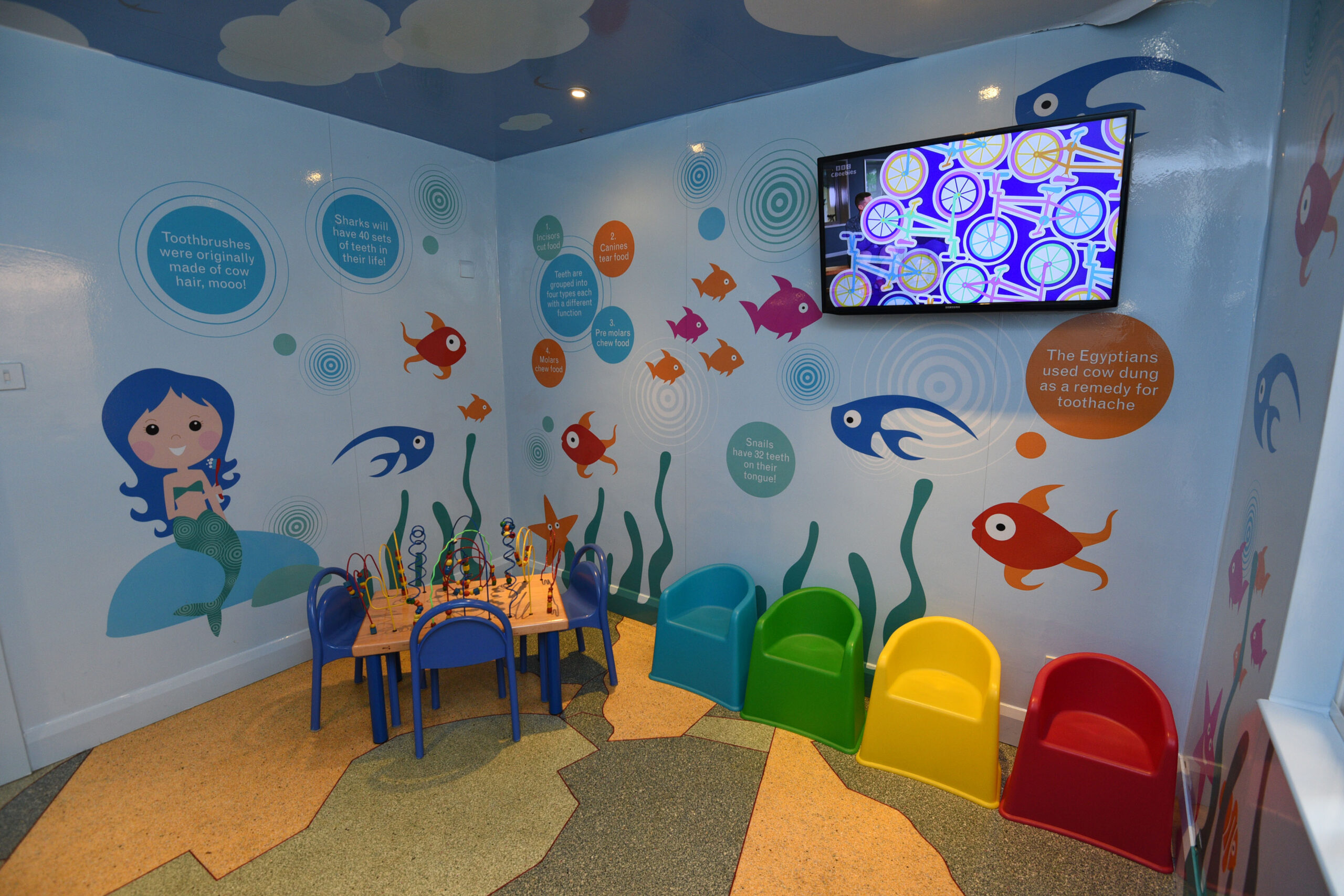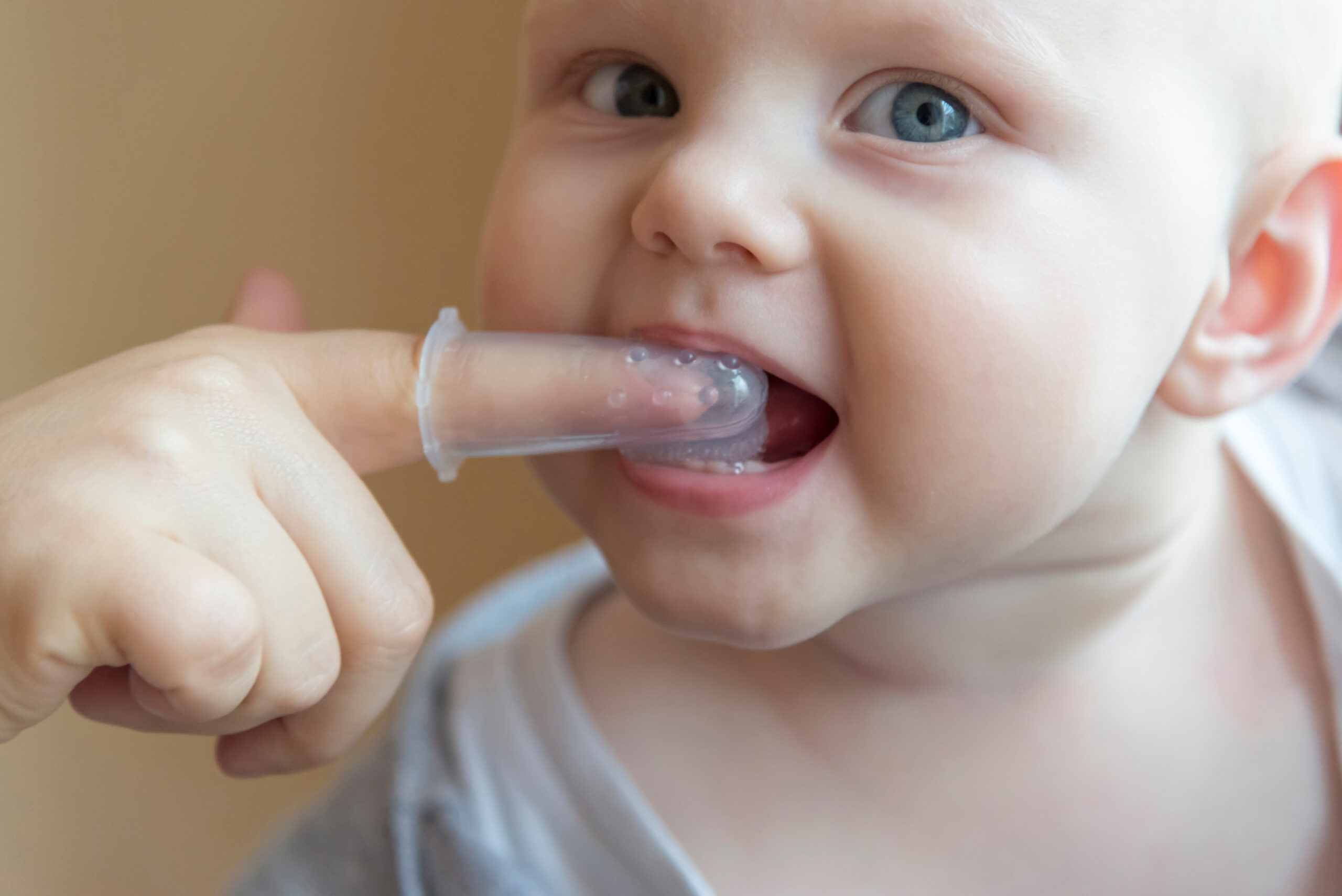



We are pleased to announce that NHS places for children are currently available. To register your child or for further information, please contact the practice on 01452 727667, and our Patient Advisors will be happy to assist you.

From babies to toddlers, it is important to start good dental habits early!
Parents need to think about the long-term care of their baby’s teeth, even before the teeth have erupted. No baby is too young to attend St.James Dental, so bring your baby with you when you come for your next routine examination. We recommend that babies start their routine examinations from six months old. We always regard children as very special patients and do everything we can to make their visits as pleasant and enjoyable as possible. Our main aim is to help all children form good dental habits and an early interest in dental health. This will prevent problems with their teeth in later life.
Babies can sometimes be born with teeth present, but they generally appear around 6 months. They have usually all erupted by 36 months. Whilst your baby is teething, reduce their discomfort by keeping their mouths clean. Use a damp gauze pad 3 to 4 times a day or gently brush their gums with a baby toothbrush. It can also help to give your baby a cool teething ring to bite on and, where necessary, apply sugar-free teething gel. If your baby’s doctor prescribes liquid medicine, always ask for the sugar-free alternative, especially if your baby is on long-term medication.
Tooth brushing should be started before the teeth erupt. This allows your baby to get used to having a brush in their mouth. To brush your baby’s teeth, lay them flat with their feet facing away from your body. Use a small piece of gauze or soft baby toothbrush and gently stroke the gums. When teeth begin to appear, use a pea-sized amount of toothpaste pushed well into the bristles. Always brush twice a day.
Sit them on your lap or stand behind them. Gently brush their teeth in circular motions and brush each surface of every tooth. Brush for at least two minutes. Clean your child’s teeth twice a day up to the age of seven or eight and then supervise their cleaning up to the age of 12.
This is a type of tooth decay that affects a baby’s upper teeth and is associated with bottle feeding. Nursing caries are caused when babies are settled to sleep with a bottle of milk, or any sweetened liquid. A toddler who is allowed to continually sip anything other than water from a bottle or training cup may also develop tooth decay.

Have you considered how your child’s diet may affect their oral health? Sugar in a child’s diet produces acid that attacks their teeth. Their teeth are exposed to this acid for up to 30 minutes after eating and drinking sugary foods. At this point their teeth are at risk of decay.
Kylie came to visit our nursery and pre-school children today to deliver a talk on oral hygiene. She was amazing! She pitched the talk to their level, and the children were fully engaged. They haven’t stopped talking about cleaning their teeth all day! Thank you very much for the goodies that you left with us too. Many thanks.

For more information, please contact our patient coordinator, Amanda, on 01452 727 665 or info@stjamesdental.com.
Did you know that we offer care plans through Denplan?